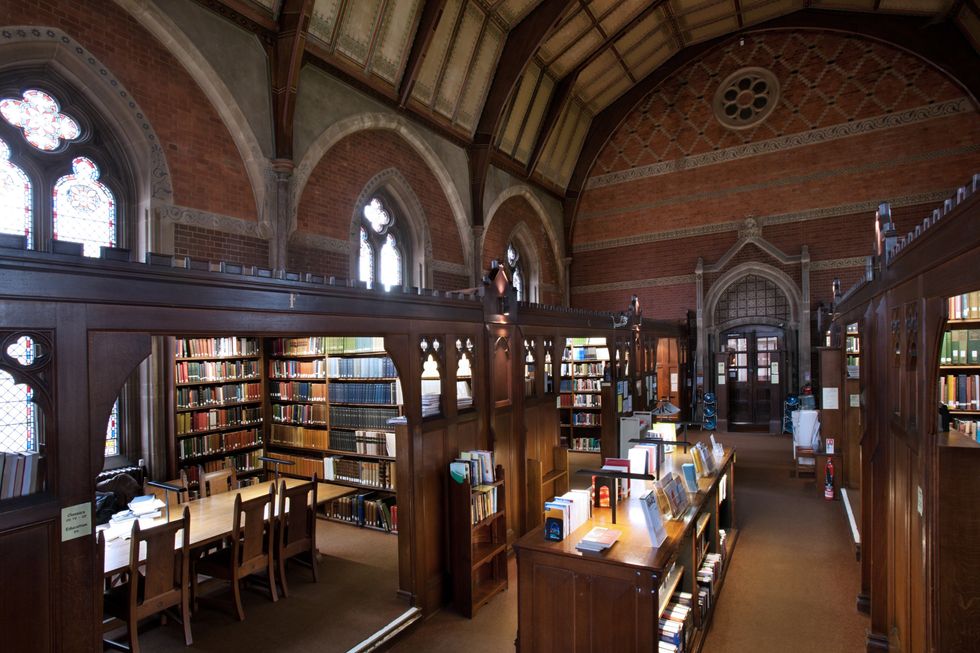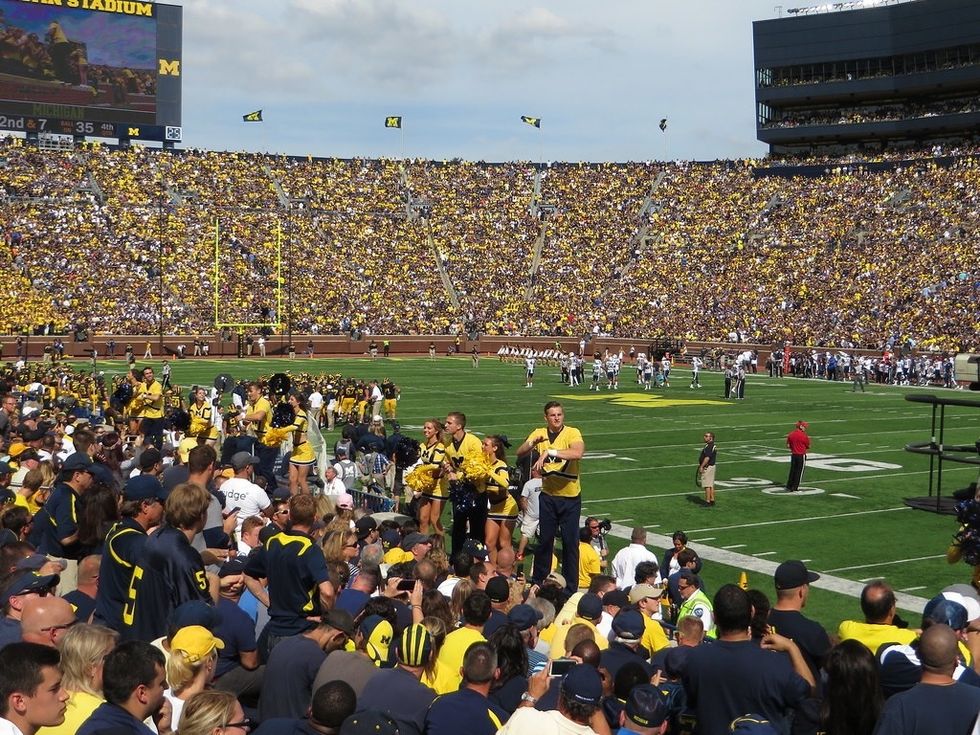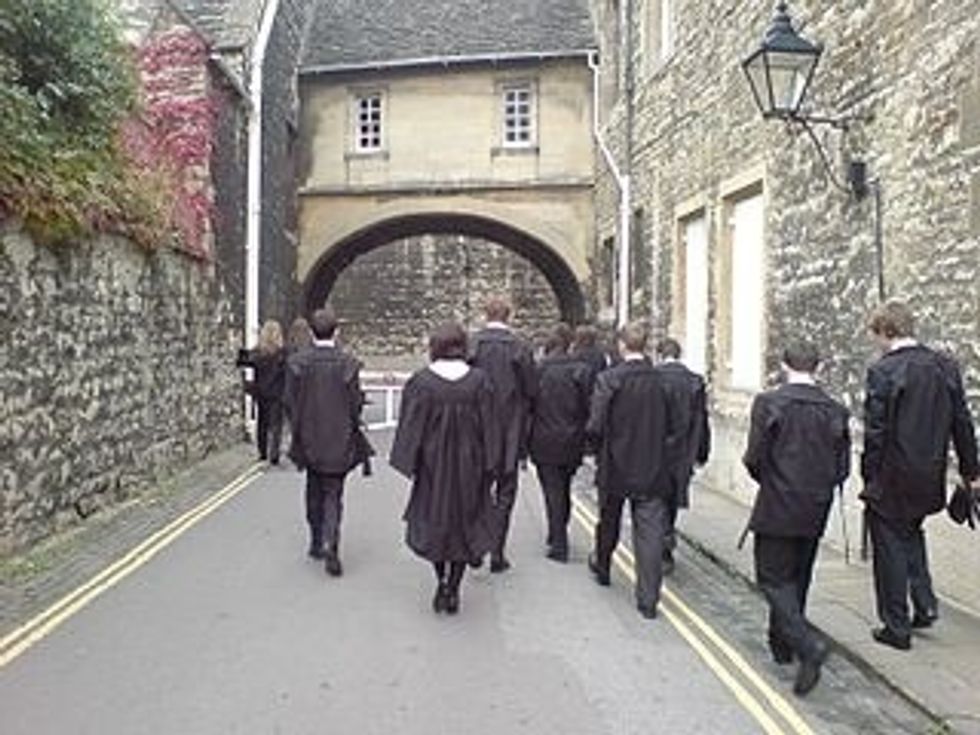Have you ever wondered what college would be like in another country? Thinking about studying abroad in the UK? You might be surprised to discover that, despite sharing a language and various other cultural norms, British students partake in a significantly different college culture than that experienced by their American counterparts, and not just because of the fancy robes and historic brick buildings!
1. The words 'college' and 'university' are not interchangeable.
Believe it or not these terms do not mean the same in both countries. In the US, college typically refers to a higher education institution where students work towards earning an undergraduate degree. In the UK however, college, unlike university, does not refer to a degree awarding establishment. Rather, it's generally a stepping stone some choose to take in the two-year period (otherwise known as sixth form) between the end of secondary school and the start of university, or as a vocational alternative to the traditional degree track. University therefore refers to all levels of degree study (undergraduate and graduate) in the UK, whereas, only alludes to schools offering graduate diplomas in the States.
2. There is no such thing as being 'undecided'.

Every year, multitudes of Freshman enter college as 'undecided', providing them with the opportunity to decide their major of study later on during their college career. Unfortunately for those studying in the UK, this is a far-fetched luxury they do not get the joy of experiencing. The UK requires applications to be submitted the January before a student's expected start date through the UCAS portal. Whilst not dissimilar to the Common App, the stand-out difference is that UCAS requires a student to declare their field of study by this date, and only in rare circumstances, can this be changed without having to re-apply all over again. What a daunting prospect!
3. Sports are definitely not a big deal.

Who knew that sports weren't glorified in all academic institutions around the world? It's almost unheard of to think of a college experience without some level of widespread sporting enthusiasm on campus, but for many British universities, this is a reality. Being on a sports team does not have the same prestige as it does in the States (if the university even has official teams) and because of that, scholarships for student athletes are severely lacking, as is school sporting spirit.
4. Having to share your room is unheard of.

In the US, having a college roommate is like a rite of passage. Strangers can become best friends or sworn enemies depending on the situation, however, this is not something British students need worry about at all. To share a room in the UK would be a real peculiarity; the norm being that each student is assigned their own single room. Although these students often share communal living areas such as kitchens and living rooms, they always have the availability of privacy, thus providing them the best of both worlds: company and personal space.
5. As is Greek Life.
Fraternities and Sororities are a concept that British university students tend only to witness in movies, a representation that, as we all know, isn't entirely accurate. Perhaps this provides some insight into their absence within the UK, after all, some portrayals of scandalous parties and disturbing traditions can be quite harrowing! Although, it is debatable whether Greek Life will make an appearance within the British Isles in coming years, following suit of other customs that have already made their way across the pond, including American football and cheerleading. Greek Life can be a great opportunity in college to make friends and find a place to belong, hopefully our British friends will one day share that experience too!
6. Party culture doesn't include cheap alcohol and red solo cups.
Within the US, college culture and part culture often seem to be considered as going hand in hand. This wouldn't be too unusual in any university across the globe, but while red solo cups are nothing out of the ordinary for the majority of American students, for Brits, these are just something out of the movies. Whilst many college students in the USA frequent sipping cheap booze out of plastic cups at weekend frat parties, in the UK, where the legal drinking age is 18, students can happily spend their time at bars and clubs which serve arguably much better beverages than 'jungle juice'. Party culture also seems to be less intense, are British students just more civilized or is it perhaps because the risky and exciting element of breaking the rules is removed?
7. There is no such concept as 'GPA'.

GPA (or Grade Point Average for any of you Brits reading) is a cumulative average of scores achieved in all classes taking, beginning first semester of freshman year and ending last semester of senior year. To have a high GPA requires consistent effort and participation to achieve highly, but in Britain, students do not have to concern themselves with this. Grading is considerably easier with students only being required to achieve around 70% across their degree course (attained through selected assessments and essays) to be awarded a First (think summa cum laude), the highest degree one can achieve!
8. However, there is the small matter of a dissertation being required to graduate.
Despite the British university system seeming somewhat easier, they do have a considerably more challenging final year. In the US, a thesis or dissertation is not usually expected in order to achieve your degree, unless of course, you choose to pursue an honors course of study. On the contrary, all students in the UK are expected to produce a passing dissertation at the undergraduate level in order to be awarded their degree. It's safe to say those studying in the States do not envy that!
9. Undergraduate study is three years, not four.

In the States, an undergraduate bachelor's degree is expected to take four years to complete, and an associate's to take two. Although there is no such thing as an associates degree in the UK, this doesn't mean you must commit yourself to four years of study. All undergraduate courses in England and Wales take three years to complete (with the exceptions of medicine and dentistry, which, yes, are also considered undergraduate) due to the emphasis on specialization and the absence of a general education curriculum. Scotland stands alone in offering four year courses more in line with the system in the States.
10. Tuition is insanely cheaper in the UK!
Obviously tuition will be cheaper with one less year of bills to account for, however, this is not the only thing that helps students keep a little more of their savings in the bank during their college days. Tuition for British students attending universities within the UK is a total of £9000 ($11,430) a year at the undergraduate level, and for Scottish students opting to be educated in Scotland, higher education tuition is provided at no cost whatsoever! Students, of course, must still fork out for accommodation, dining and school supplies, but there is no arguing that this is unbelievably less than what most students in the US are paying, even with scholarships! Who wants to tell the Brits how lucky they are?
So there you have it. Student life in Britain and America is quite noticeably contrasting. Neither experience can be considered superior to the other as, like with anything in life, they both come with their own set of positive and negative factors. I suppose it's up to you to decide which you think seems more preferable!



















